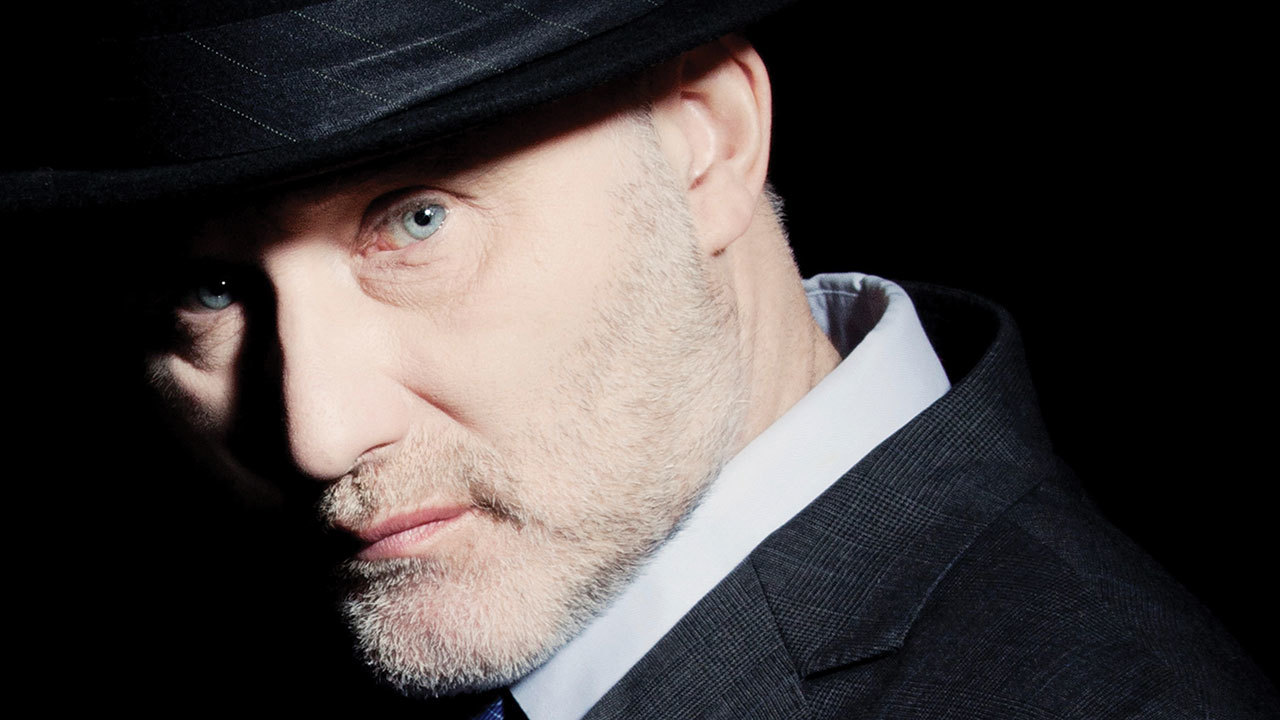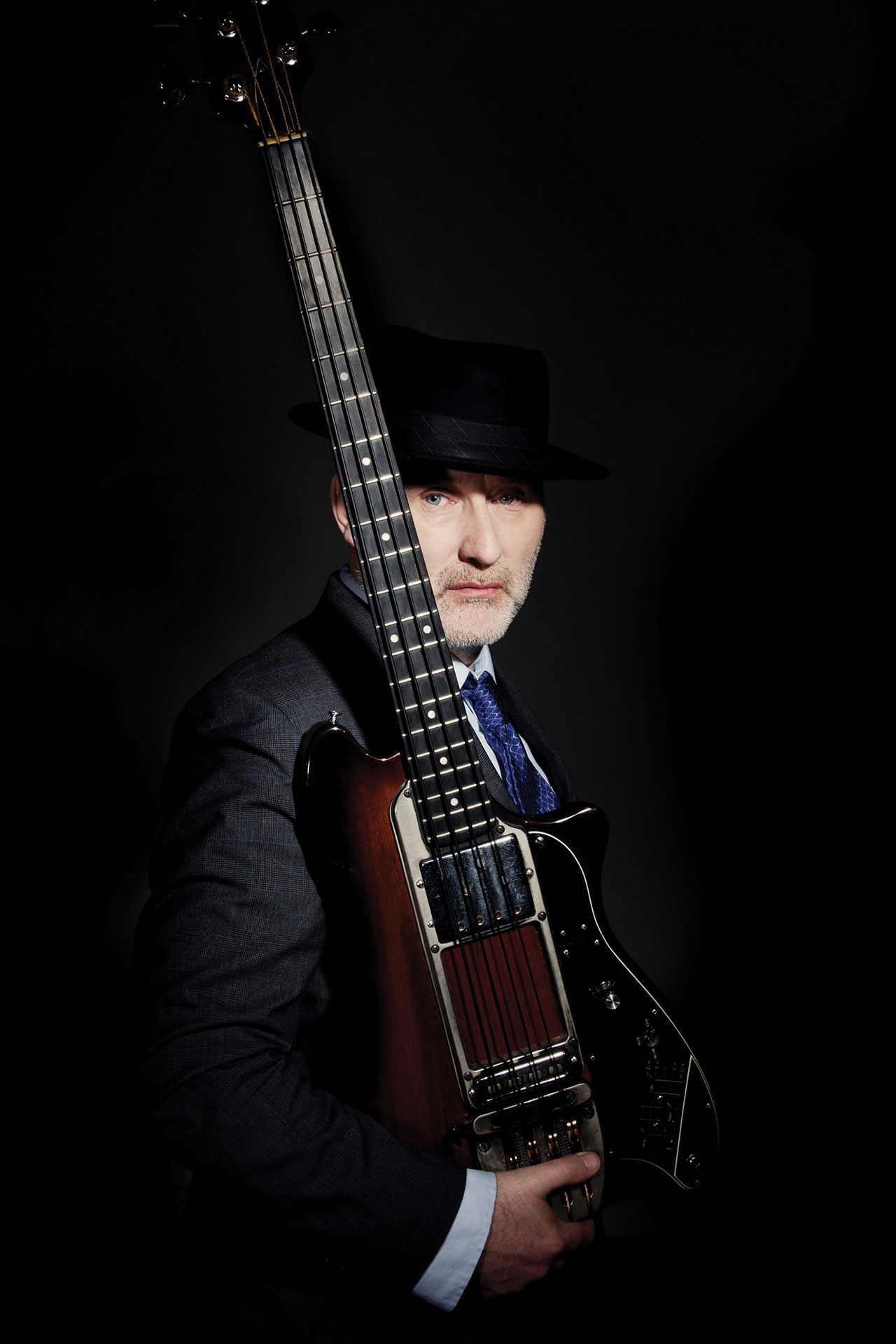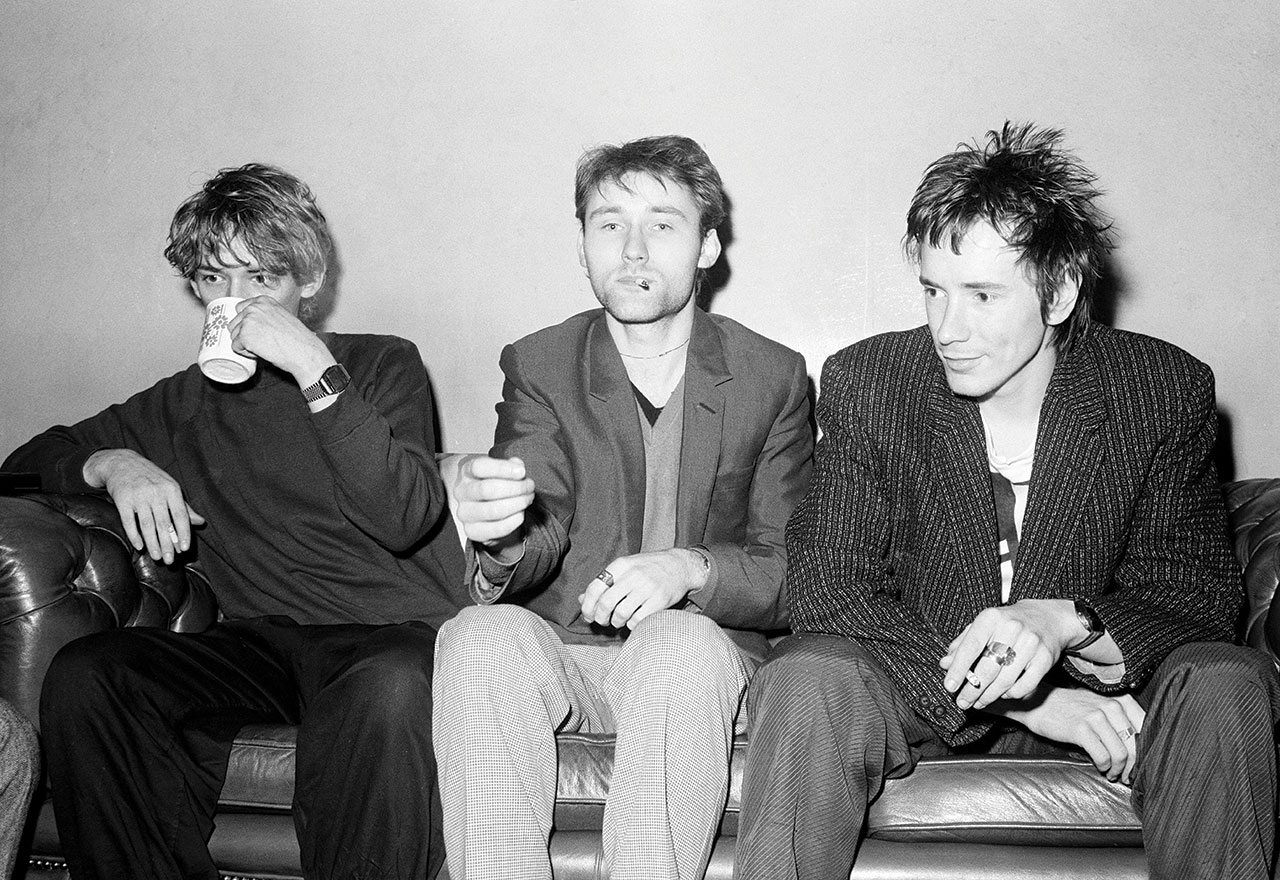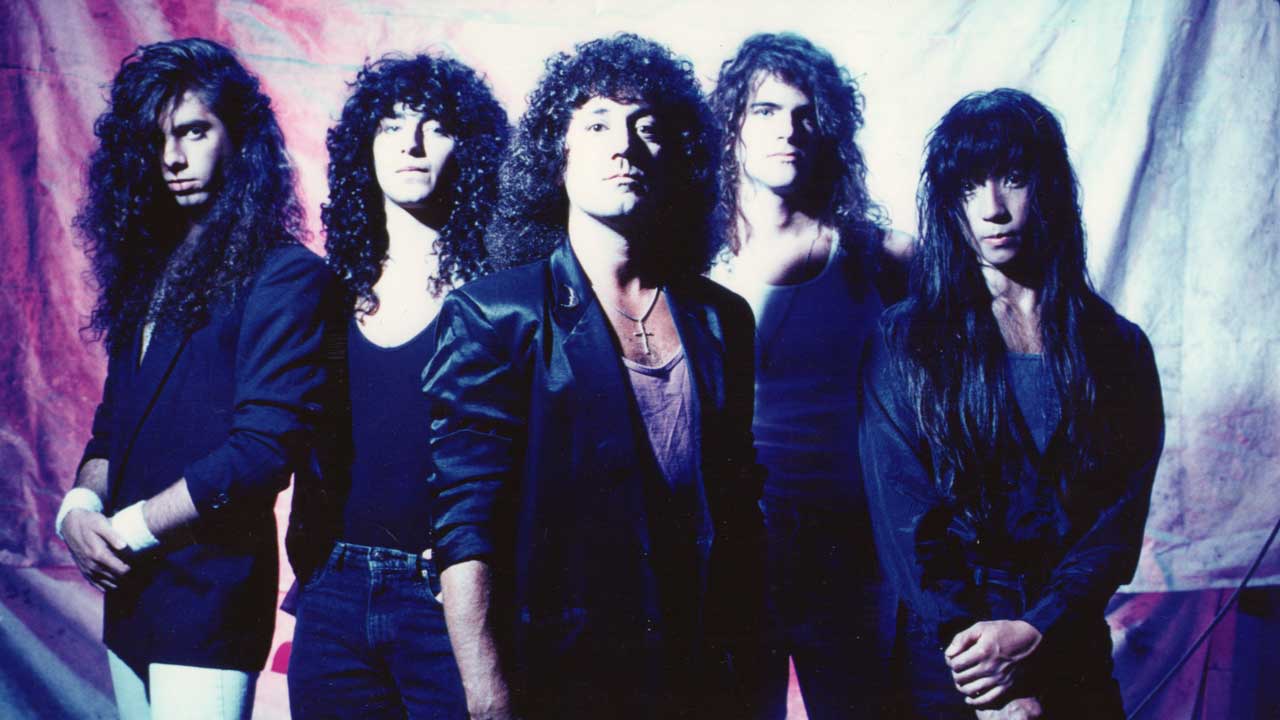The Outer Limits: How prog is Jah Wobble?
He may be best known for his post-punk days as the bassist in Public Image Ltd, but he’s also worked with Jaki Liebezeit, Steve Hillage and Brian Eno, and is a big prog fan himself...

The lead-off single for Jah Wobble’s new album is a distinct echo from the past. First issued in 1978, Public Image was the debut 45 from PiL, the post-punk outfit formed by John Lydon in the wake of the Sex Pistols’ demise. Over its abrasive three minutes, Lydon poured scorn on his former colleagues over Keith Levene’s guitar and a classic rumbling bassline from Wobble.
Nearly 40 years on, Wobble and long‑time band The Invaders Of The Heart have given Public Image a dub‑jazz makeover that shifts the song into a whole other spacey dimension.
“I never would’ve thought of doing the old PiL numbers a few years ago,” Wobble says. “I always thought they were sacrosanct or that you couldn’t do them justice. But when it was suggested that we do this one, I said I’d give it a go. And we ended up doing a sophisticated minor key version. I love it. It sounds just as fresh as the original, but in another way.”
Parent album The Usual Suspects is full of similarly radical reworkings. Wobble has chosen to revisit songs from his sizeable back catalogue – one that spans PiL, solo work, collaborations and The Invaders Of The Heart, including 90s hits such as Visions Of You and Becoming More Like God. Factor in a couple of live tracks and cinematic scores and what you have is a ravishing suite of moods that gather at the intersection of dub, funk, prog jazz and world music. “We felt that we should document the live set, because it’s really developed,” Wobble explains. “We kept interpreting the numbers better and better and there’s a lot of spontaneity there every night.
“Back in the day, you’d put numbers together, go in and record, then go out live. But this is the other way round – we played the stuff for ages, then went into the studio. This band is always very creative. Even during those sessions, we’d be coming to the end of a number and start improvising on something else.”

Wobble’s deep passion for musical exploration has taken him far and wide since he was loaned his first bass by Sid Vicious, whom he met in 1973 at London’s Kingsway College (Vicious, incidentally, also gave him his stage moniker, after slurring Wobble’s real name, John Wardle, when drunk).
He’s recorded with Can’s Holger Czukay and Jaki Liebezeit, plus noted French DJ/producer François Kevorkian, Bill Laswell, Brian Eno, Afro Celt Sound System, Björk, Steve Hillage, The Orb, Pharoah Sanders and countless others – among them his wife, the Chinese guzheng player Zi Lan Liao. In that time he’s released everything from film soundtracks and ambient albums to spoken-word pieces and tributes to William Blake and the Celtic Poets.
Sign up below to get the latest from Prog, plus exclusive special offers, direct to your inbox!
Originally inspired by dub reggae, Wobble’s trademark low-end bass first found a home with PiL, investing their music with a depth and range more akin to modal jazz – and, as it transpires, the elasticity of the prog rock that informed his youth.
“I’m naturally not disciplined,” he says. “I’m always looking to go beyond strictures. That’s why I found the whole thing about playing three-chord punk very bourgeois at the time. I was an uptight, ex-Catholic altar boy, and me and hallucinogenics didn’t mix well at all. I was far more into booze and powders and was very drawn into left‑field areas and prog. The others would all laugh at me because I wanted to get hold of all the Steve Hillage albums and play them to death.
“Prog was my guilty pleasure. When I was coming down from taking speed, I’d take downers and put Tangerine Dream on the turntable. I liked their more far‑out stuff, where you could really get lost in it. There’s a correlation between that and the mind relaxing and expanding. I used to love Hawkwind too – they were incredible. I remember seeing them with Johnny Lydon at the East Ham Odeon [February 1975] and it was sold out.”
Amid rising tensions within the ranks, Wobble quit PiL after touring America with their experimental masterpiece, Metal Box, in 1980. He was, by then, already embarking on a different journey.

“I already knew I’d be leaving PiL because it had just become such an ugly, nasty, childish little scene,” he recalls. “We had [jazz/free funk guitarist] James Blood Ulmer supporting us on that tour, with the whole harmolodics thing going on. And I’d just got into Miles Davis at that point, thanks first of all to Kenny MacDonald, PiL’s tailor, who introduced me to Dark Magus.
“We’d just done Metal Box, which I thought was really out there and unique, and then I discovered there was already this thing on the black American music scene that was just as primal, uncompromising and un-bourgeois as you could get. I was absolutely inspired by music at that point. I was listening to people like Jamaaladeen Tacuma, who was Ornette Coleman’s bass player, and Arthur Blythe [jazz saxophonist].”
Post-PiL, one of the first projects Wobble took on involved Czukay and Liebezeit, with whom he recorded the avant-tronic Full Circle in 1982, at Can’s fabled Inner Space Studio. It was an education.
“They were amazing and really fucking serious,” he says. “Holger had studied with Stockhausen, who I’d gone to see at the Barbican, and I loved that whole musique concrète thing combined with words.”
It was also the start of a friendship with Liebezeit that endured through the decades. “I’ve never said this to anyone before. Whenever someone close to me has died, I’ll go and put their name down in this book where I practise Buddhism. And they’ll have a session there where they’ll say Buddhist prayers for someone who’s departed. I normally try to get that done as quickly as I can. But with Jaki I didn’t rush to do it because I knew he would be all right. Jaki’s karma is good. He was a special guy and an incredible drummer.
“As I got to know him better over the years, he once told me about when he lived in Ibiza [does a soft German accent]: ‘I was thinking of throwing myself down onto the rocks there, because I was useless. I was shit.’ He wanted to be a particular jazz drummer – I think he wanted to be the guy from Sketches Of Spain [Jimmy Cobb] – but in the end he was just resolutely himself. Jaki was just a Zen master.”
We’re sitting in the front room of Wobble’s house in the verdant Cheshire suburbs. He’s lived here since 1999, when he left the increasingly gentrified East London of his childhood for a fresh challenge and, as he puts it, “somewhere a bit earthy”. It followed a critical period in his life where, having kicked booze and drugs midway through the 80s and briefly retired from the music business to become a train driver on the London Underground, he’d re-emerged on the Island label with two glorious world music albums, fronting The Invaders Of The Heart. Both 1991’s Rising Above Bedlam and 1994’s Take Me To God, featuring high-calibre guests such as Sinéad O’Connor, Natacha Atlas, Baaba Maal and Gavin Friday, were artistic and commercial peaks that suggested Wobble had crossover appeal.

Stardom had never been his goal, though he concedes that “for a while there it was really touching on that. But I didn’t take it too seriously. I think Island were very disappointed in me, because stuff like Play Dead, with Björk, was supposed to have my name on it and I didn’t really like the way the record sounded. So I told them I’d keep the publishing, but they could take my name off it. I think they thought, ‘This guy’s a loser.’
“By that time, I knew what I wanted to do – to plough my own furrow and be an artist. That Island period had been a marvellous time for me. It was my concept with the world music and everything, with drones and disparate parts that you put together.
“I’d been into that stuff for a long time, starting from when I used to listen to shortwave radio. I found the oscillations trippier than anything anyone’s ever done with a synthesiser. It was like the cosmos talking to you.
“Doing that got me listening to music from the Middle East, then stuff from Iran and what I realise now was Sufi music. The big moment was watching an absolutely inspiring documentary on the BBC, The Romany Trail, in the early 80s. It tracked the migration of gypsy musicians from Rajasthan in India, through the Middle East and into the Straits Of Gibraltar from Egypt. There was a group in Cairo called Invaders Of The Hearts, which is where I took the name from.”
Moving up north was a physical extension of Wobble’s need to gradually disengage from traditional industry practice. This road to autonomy had begun in 1997, when he set up his own label, 30 Hertz.
“I was producing so much music that it was a no-brainer,” he says. “So it wasn’t really my decision. Starting a label was the best thing I ever did.”
Wobble continues to do things his way. The wild figure of his PiL days has evolved into a man with a rooted interest in spirituality and Buddhism (there’s even a separate meditation room in his house), with a BA in Music and Philosophy. He’s equally passionate about his beloved Tottenham Hotspur, and, of course, the music that seems to pour out of him with regularity. The Usual Suspects brings his tally of post-PiL albums to well over 50.
“The interesting thing with artists is seeing how they develop and how the concept changes,” he reasons. “Miles Davis was very much like that and I love the fact that he just released everything. He didn’t try to censor any of it. As Brian Eno once said, it’s about documentation. And that’s how I feel with my stuff. I once got banned from Later… With Jools Holland because I told them: ‘I don’t want to play with a pub pianist. I’m sorry if that causes a problem, but I’m not going to do that.’
“Stuff like that will hurt you, but I’m not frustrated and I’ve got no regrets, musically, which I think is important. I’ve made all the records I wanted to do and there’s still more to come.”
The Usual Suspect is out now on 3Ms Music. See www.jahwobble.com for details.
Your Shout!
He played with Johnny Rotten so does that make him punk rock? He also played with members of Can, so does that make Jah Wobble prog?
“From the first time that bass rang out on Public Image I knew here was a musician that would transform music. Those first two PIL albums, and then his experimental journeys on his solo albums and collaborations make him one of the most progressive bassists to ever exist. Incorporating dub, world music and rock together to form an incredible hybrid. Jah Wobble personifies prog fully.” - Paul Leader
“He made an album with Holger Czukay. Enough said.” - Steve Cadman
“Incredible bass player, whether with PiL, solo or collaborating with others, especially the extended version of Primal Scream’s Higher Than The Sun off the arguably prog Screamadelica. Progressive as in breaking boundaries.” - David Lloyd
“Wobbly! Not very much!” - Howard Canning
“So prog that he made Johnny Rotten progressive. That’s pretty prog!” - Wedgepiece
“Thought he was punk. Oh well…” - Hector Fortune
“About as prog as Jello Biafra. [Who has featured in My Prog Hero in this very magazine – Ed]” - Dave Probert
“Well you know, I wouldn’t complain if he won a prog award or two. Not exactly Genesis, but there’s enough there to consider him prog.” - Nick Burman
“Innovative, improviser, dubstar… Oh A13.” - Ealr Of Thorgeir
“I’m a fan, but I wouldn’t consider Jah Wobble prog because stylistically, he doesn’t quite fit. But he does have a quality that makes him unique, and a step above many bona fide ‘progs’: he’s a visionary. So if his style and musical execution are not exactly of your liking, there’s still that amazing vision that’s able to attract musicians such as Bill Laswell, Brian Eno, Jaki Liebezeit, Holger Czukay, to name a few. I always find listening to Jah Wobble to be a rewarding experience.” - Jack Rottenberg
“Jah Wobble as prog? Not quite, though experimental and visionary as proven by the sheer breadth of collaborations and influences. The Krautrock stuff is probably the closest, though some of PiL’s post-punk output skirts the fringes of prog, but at the end of the day prog is one of the few labels I wouldn’t stick on him.” - Clive Summerfield
“PiL were prog though for the first three albums at least although I like the Wobble free one the best.” - Nicholas John Payne
“Now you’re being silly.” - Steve Harrison
“Yes. Next question please?” - Jason Richards
“Who?” - Gerard McNulty
Jah Wobble & The Invaders Of The Heart - The Usual Suspects album review
"I'm no dope-smoking, vegan, PC leftie": the confessions of Jah Wobble
Freelance writer for Classic Rock since 2008, and sister title Prog since its inception in 2009. Regular contributor to Uncut magazine for over 20 years. Other clients include Word magazine, Record Collector, The Guardian, Sunday Times, The Telegraph and When Saturday Comes. Alongside Marc Riley, co-presenter of long-running A-Z Of David Bowie podcast. Also appears twice a week on Riley’s BBC6 radio show, rifling through old copies of the NME and Melody Maker in the Parallel Universe slot. Designed Aston Villa’s kit during a previous life as a sportswear designer. Geezer Butler told him he loved the all-black away strip.

